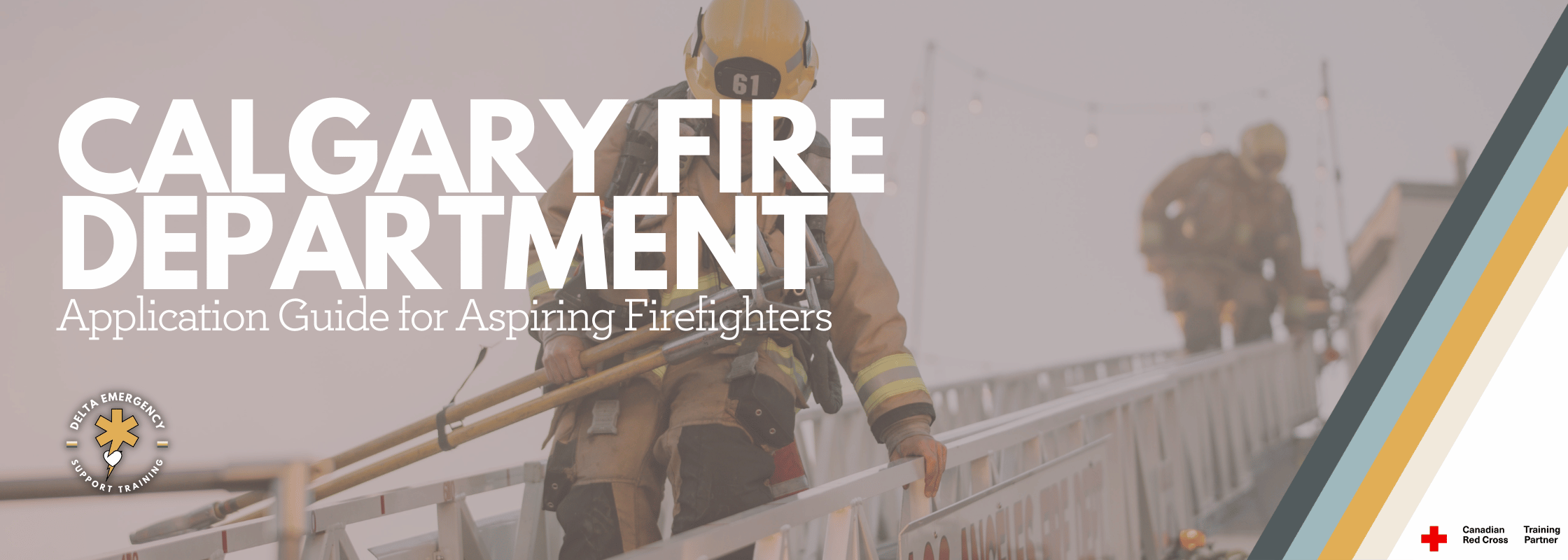CFD Application Guide for Aspiring Firefighters
/If you’ve ever dreamed of wearing the Calgary Fire Department uniform, you’re not alone. Every year, countless motivated individuals from all walks of life apply to join one of Canada’s most respected firefighting teams. Whether you’re coming off the rigs, working in the trades, or ready for a meaningful career that serves your community, the CFD recruitment process is both challenging and rewarding.
At Delta Emergency Support Training, we’ve helped many students prepare for that next step, and several of our instructors are currently serving with CFD. So, if you’re serious about applying, here’s what you need to know about the process and how to set yourself up for success.
Step 1: Meeting the Basic Requirements
Before applying, make sure you meet the minimum qualifications. Applicants must:
Be at least 18 years old
Be legally entitled to work in Canada
Have a high school diploma or equivalent
Hold a valid Class 5 driver’s licence (with a clean record)
Medical fitness is crucial — you’ll need to pass a comprehensive medical assessment that ensures you can safely perform the physical demands of the job. Strong cardiovascular health, vision, and hearing are essential for operational readiness.
Step 2: Educational and Certification Requirements
To apply for CFD, you’ll need a few essential certifications. One of the most important is Advanced First Aid (AFA), which you can earn through Delta Emergency Support Training.
Our AFA course provides the hands-on medical foundation you’ll rely on every day as a firefighter — from patient assessment and airway management to emergency scene care. We’ve even built rotation-friendly schedules for those still working in camp or on the rigs, so you don’t have to put your career on hold to train.
It’s important to note that CFD does not require applicants to hold NFPA 1001 Level I and II firefighter training, which is often mandatory for many other departments across Canada. This makes CFD an ideal opportunity for motivated individuals looking to make the leap into firefighting without already having that certification.
Step 3: The Application and Testing Process
The CFD recruitment process typically includes several stages:
Online Application: Submit your resume, certifications, and supporting documentation.
Written Exam: Designed to assess problem-solving, mechanical reasoning, and situational judgment.
Physical Fitness Test: A demanding, firefighter-specific test that measures endurance, strength, and agility.
Interview: You’ll discuss your motivations, teamwork experience, and understanding of community service.
Background Check: Ensures candidates uphold the integrity and professionalism expected of CFD members.
The process is competitive, but with the right preparation and attitude, it’s absolutely achievable.
Step 4: How to Stand Out as an Applicant
Want to stand out in the hiring process? Focus on building the qualities that CFD values most: teamwork, communication, leadership, and resilience.
Physical Conditioning: Prioritize strength, endurance, and functional fitness — firefighting is demanding work.
Community Involvement: Volunteer with local emergency services, community programs, or charities. It demonstrates commitment and service-mindedness.
Communication and Leadership: Practice staying calm under pressure and leading effectively in high-stress situations.
CFD is looking for individuals who bring heart, reliability, and the willingness to learn — not just technical skill.
Step 5: Suggested Courses to Strengthen Your Resume
While CFD doesn’t require NFPA 1001 firefighter certification, there are plenty of valuable courses that can give you a competitive edge and help you hit the ground running once you’re accepted.
Consider training in areas such as:
Confined Space Awareness and Rescue – Learn safe entry, monitoring, and rescue techniques.
Rope Rescue (Basic & Advanced) – Develop technical rope-handling skills used in high-angle and low-angle rescues.
Hazardous Materials Awareness (HAZMAT) – Understand how to recognize and safely respond to dangerous goods incidents.
Transportation of Dangerous Goods (TDG) – An important credential for anyone working around hazardous substances.
ICS (Incident Command System) Training – Build your understanding of emergency scene management and structure.
Many of these courses are available through technical safety providers or emergency training academies — and they all show CFD that you take professional development seriously.
Step 6: Training and Career Development
Once selected, recruits undergo an intensive 16-week CFD Fire Training Academy program, covering everything from fire suppression and rescue techniques to hazardous materials response and medical care.
Graduation isn’t the end of learning — CFD firefighters continue developing through specialized courses, leadership tracks, and ongoing professional education.
How Delta Can Help You Get There
We know what it takes to succeed in the CFD process because our team has been there. At Delta Emergency Support Training, we’ve helped countless students earn their Advanced First Aid certification and gain the skills and confidence they need to take the next step.
Several of our instructors are active CFD members, offering insider guidance, mentorship, and firsthand insights into the realities of the job. Many of our graduates have successfully transitioned from oilfield work or trades into full-time firefighting careers — proving it’s never too late to make the change.
Your Firefighter Journey Starts Here
Applying for the Calgary Fire Department is a big step, but it’s one that can lead to an incredible career of purpose, teamwork, and community impact.
If you’re ready to make a change — to trade in your rotation schedule for a fire hall shift and a new sense of purpose — start today.
At Delta Emergency Support Training, we offer Advanced First Aid courses, including camp rotation-friendly schedules that fit your lifestyle. You bring the dedication — we’ll help you build the foundation.



